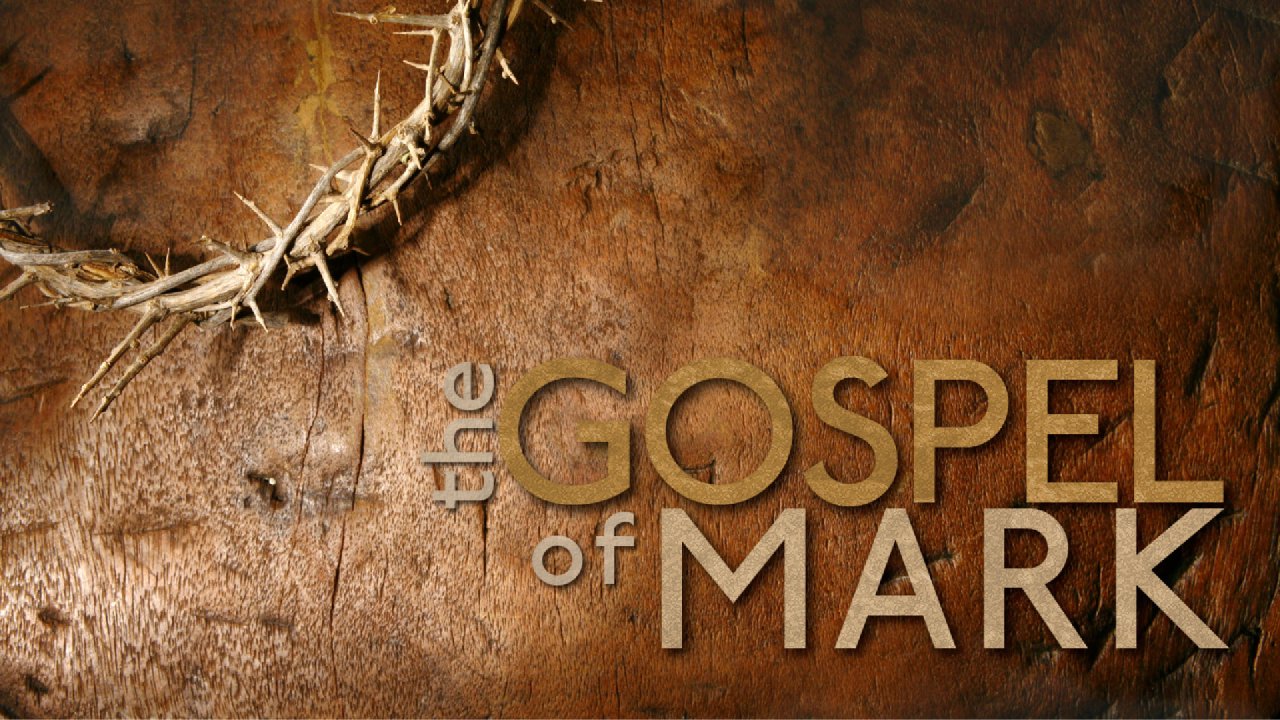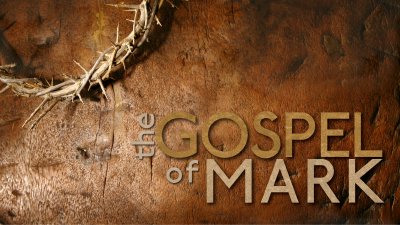8:31-32: This is the first time in Mark’s gospel that Jesus reveals his death and resurrection, and Peter has a hard time with this news. Not only is he still not grasping all that is required of Jesus as Messiah, but he probably doesn’t want to believe that his beloved rabbi and friend must suffer, be rejected and killed.
8:33: Jesus recognizes right away the work of Satan present (through the lips of one of his closest friends!). He responds with a rebuke (“Get behind me, Satan!”) and a warning ("For you are not setting your mind on the things of God but on things of man"). Contemplate what this warning implies for us today. When we set our minds on the things of man, we’re more vulnerable to Satan’s lies & temptations… and our view of Christ is muddied... But when we set our minds on the things of God, we see Jesus more clearly… we see Him for who He truly is.
8:34-35: Jesus goes on to tell them: “deny [yourself], take up your cross and follow me.” This isn’t an easy task! We are called to shift our allegiance from SELF to CHRIST. The cost of following Jesus is EVERYTHING – our whole lives. It’s an absolute surrender… complete and utter submission. But… in losing yourself, you GAIN Christ! Philippians 3:7-8 – the great paradox of the Christian life.
For the disciples, the cross meant suffering, torture, death. It was how the Roman government at that time carried out executions… the condemned person would literally take up their cross and carry it on their back to the place of execution. We tend to use this phrase very lightly, “that’s just my cross to bear,” usually referencing something unpleasant or inconvenient. But that’s such a misrepresentation of the cross! It's a death of self!
9:2-3: Can you imagine being an eyewitness to Jesus’ transfiguration… getting a glimpse of Him in all His holiness, immersed in the brightest light imaginable… No wonder Peter, John, and James were terrified (and confused!). Jesus just revealed to them that he must suffer many things, that he would be rejected and afflicted, and ultimately die on a cross… so what a beautiful contrast of the future hope. This vision gave the disciples a sneak peek into the glory that awaits Him. And this was such an impactful event that they referenced it later in their ministries as evidence that Jesus is who he says he is. (2 Peter 1:17-19).
9:4: It’s important that Elijah and Moses appear with the transfigured Jesus. Elijah represents the prophets, and Moses represents the law. So together, they represent all that Jesus came to fulfill. They also each received visions of the Glory of God on top of a mountain. But both those cases were mere reflections of God’s Glory, whereas what the disciples were seeing here was God’s actual glory. Jesus doesn’t REFLECT the brightness of God’s glory… He IS God’s glory. They may have spoken FROM God, but Jesus speaks AS God.
9:7: This is the second time in Mark’s gospel we hear God’s audible voice. The first time was during Jesus’ baptism when he spoke directly to His Son saying, “You are my beloved Son, in whom I am well pleased." This time, God is speaking to the disciples, “This is my beloved Son, listen to Him!” What a command!
9:18-19: In the next story, we learn the disciples are unable to heal the boy with the unclean spirit. Jesus’ words suggest that this is due to their lack of faith. They weren’t prayerful! They were relying on their own power and strength rather than the Lord’s. (Convicting!)
9:22-24: In contrast, the boy’s father knows that Jesus is his only hope. He knows faith comes only from the Lord, that only Jesus can create faith in his doubting heart. And he called out that doubt, “Lord, I believe. Help my unbelief!” And what’s ironic, is that this confession of unbelief is actually an example of belief… belief in prayer, faith in Jesus. We would do well do model this prayer!
Attached is the painting I shared by Raphael, called Transfiguration. It ties all of these stories together so well, showing the great contrast between the holiness of the Lord and the brokenness of the world. His power and sovereignty. Our powerlessness and desperate need for Him.
Reflection: In what ways have you seen the glory of God manifested in your daily life?
Reflection: In what ways have you experienced the Lord helping with your unbelief?






